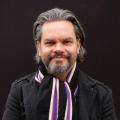
A St Albans engineer has been given a rare accolade by a nearby university.
Fiona Clark, head of capability at Luton-based aerospace engineering company Leonardo, has been appointed as visiting professor by Cranfield University in Beds.
A visiting professor is someone from outside a university who comes in to give specific lectures on the university’s courses. Students at Cranfield are typically serving military officers, or those who work for the Ministry of Defence or in the civilian defence industry, and some of the university’s alumni are amongst the luminaries of the UK’s military and defence sectors.
Fiona has been lecturing at Cranfield since the 1990s, sharing her industry perspective with the students and covering everything from the simulation and modelling of new innovation, to strategic operations and tactics. In today’s climate, she is paying particular attention to the changing nature of global threats and the inventive thinking that will be required in the UK to stay ahead of them.
She originally joined Leonardo in Luton back in 1984 as a systems engineer and over the decades was promoted up to her present role as head of capability. In her current role she is responsible for the sensor capability being developed at the Luton site, ensuring that the organisation develops the right equipment to protect future generations.
Fiona said: “Being granted visiting professor status is a show of gratitude and respect for significant support given to these courses over many years. It’s a real honour and it is such a joy for me to continue with these lectures.
"It was mentioned in passing last year that I might be put forward for visiting professor status, but I didn’t actually expect to be accepted, and hadn’t heard anything… so I was delighted when I was told during my last lecture that the university’s Senate had approved the award, and that I am now a professor!”
She explained her approach to academia: “If students ask tricky, pertinent questions it doesn’t terrify me, it inspires me. I try to encourage the students to think bigger, think strategically as well as tactically, and to always keep an operational focus in mind: there are real people involved in any hostile engagement, so they must be first and foremost in our minds with everything we do.”



Comments: Our rules
We want our comments to be a lively and valuable part of our community - a place where readers can debate and engage with the most important local issues. The ability to comment on our stories is a privilege, not a right, however, and that privilege may be withdrawn if it is abused or misused.
Please report any comments that break our rules.
Read the rules here